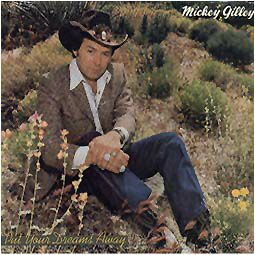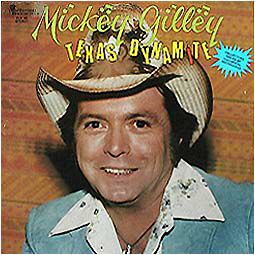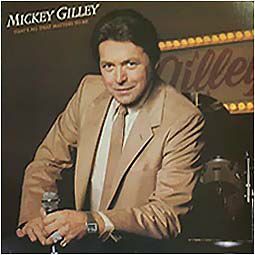


MICKEY GILLEY
For most of his
career, pianist/vocalist Mickey Gilley lived in the shadow of his cousin, Jerry
Lee Lewis, playing a similar fusion of country, rock, blues, and R&B. In the
early '70s, he managed to breakthrough into country stardom, but it wasn't until
the late '70s, when he became associated with the urban cowboy movement, that he
became a superstar.
Gilley, like Lewis, was raised in Ferriday, LA. It wasn't until Jerry Lee had a
hit with his first Sun single, "Crazy Arms," that Mickey decided he wanted to
pursue a musical career. In the early '60s, he became a local favorite by
playing a never-ending series of bars and clubs. A few of singles became Texas
hits, but he didn't have a national hit until 1968 with minor hit "Now I Can
Live Again" on Paula Records.
In 1970, he opened Gilley's Club in Pasadena; the honky tonk had previously been
known as Sherry's Club, and its owner, Sherwood Cryer, asked Mickey to re-open
the bar with him. In 1974, Gilley had another local hit with "Room Full of
Roses". Playboy Records, which was distributed by Epic, heard the record and
acquired national distribution for the single. It became a number one country
hit, crossing over to number 50 on the pop charts. "Room Full of Roses" launched
a string of updated, countrypolitan-inflected honky tonk hits for Gilley that
ran for just over a decade. Gilley racked up 16 number one hits besides "Room
Full of Roses," including "I Overlooked an Orchid," "City Lights," "She's
Pulling Me Back Again," "True Love Ways," "Stand by Me," "That's All That
Matters," and "A Headache Tomorrow (Or a Heartache Tonight)."
Gilley signed with Epic Records after Playboy folded in 1978. The following year,
the film Urban Cowboy — which was based on Gilley's Club and featured a cameo by
Mickey, as well as several of his songs — brought him to national attention,
which resulted in a string of six straight number one singles. He continued to
have Top Ten hits until 1986, when his career began to slip. The late '80s were
plagued with problems for Gilley. Not only had a new generation of country
singers replaced him on the charts, he had financial problems which culminated
in the closing of Gilley's Club.


